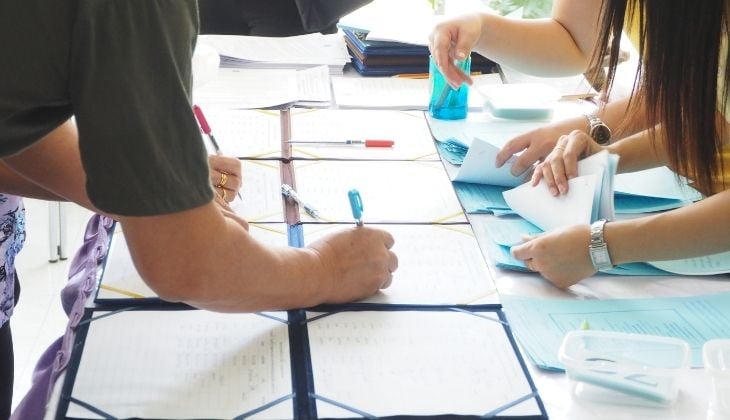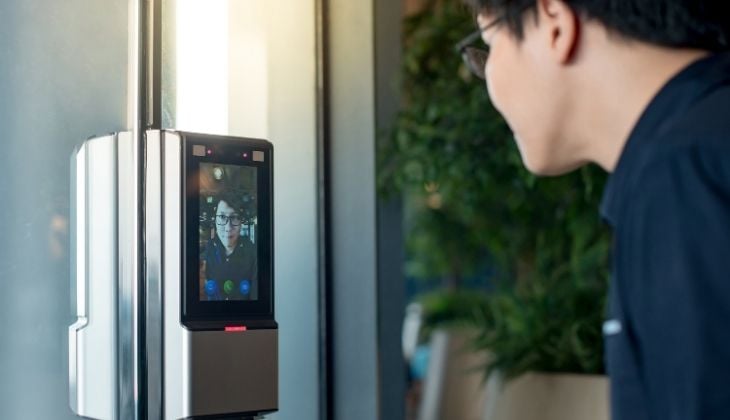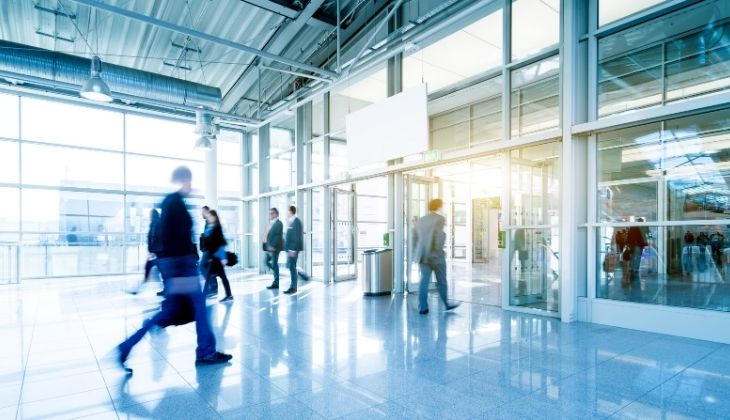As ever, the event planning sector is in the midst of the process of renewal and modernisation. Just look at the Costa del Sol. This world-class MICE destination, both before the pandemic and in this current time of uncertainty, knows all too well when the time has come to innovate and just how to tread new ground and look to the future.
It certainly seems that some things have changed. In this article, we will take a deeper dive at one of the latest trends to hit the sector: facial recognition at events. Promising to make an appearance in future events, this new accreditation system is underpinned by security and innovation. Keep reading to find out everything you need to know.
Technology that makes life easier
Over recent decades, evolutions in technology have resulted in new trends at events, whether they be congresses, trade fairs or anything else. The consequence of introducing new technologies to events has been improvements to user experience, planning and protocol.
While these technologies have certainly helped to promote and enable hybrid events, such as Working for What and others events scheduled at Palacio de Ferias y Congresos de Málaga this year, at physical events they have a whole other effect. And we’re not just talking about virtual reality and video mapping.
Facial recognition is a technology that makes accreditation at events and life much easier. This is true for a couple of reasons, namely:
- Facial recognition makes it easier and faster to check attendees, making the registration process more efficient.
- In terms of the transmission of the virus, a concern at the forefront of our minds, this form of accreditation is more secure, allowing event planners to enable or bar entrance to certain attendees.
Efficient event tickets
Facial recognition at events is particularly useful when it comes to managing the attendance list. The technology transforms attendees into the tickets themselves, through their faces. Efficiency is therefore consolidated as one of the strengths defining the MICE sector.

Identification via facial recognition is faster, more efficient and leaves no room for error. The accuracy of the technology makes events run smoothly, particularly at the start of the event when event planners are checking the arrival and entrance of attendees.
Even at events that last one or more days and/or have restricted areas, attendees can be identified without the need for staff to be present at all times. Cameras installed at strategic points at the entrance of your event have the capacity to check attendees’ credentials, thus enabling or barring access to individuals.
As the process does not rely on humans, the technology makes it quicker for attendees to enter congresses and trade fairs. This is vital for the scheduling of the event, as any delays can have a knock-on impact on events with close timings or activities running back to back.
Security at every level
Another of the advantages of facial recognition at events is that it increases security. Physical events with attendees entering the traditional way may cause concerns when it comes to the transmission of COVID-19. Even events that do not use physical tickets, though there are staff checking attendees as they arrive, are less safe than a facial recognition accreditation system.

Events that control access through facial recognition are therefore more secure. Facial recognition is a contactless technology; a definite plus in the context of the pandemic which obliges us to sanitise both our hands and any physical surfaces frequently.
Facial recognition can also be used to stop any delinquents and criminals at large-scale events. Crowds and pathogens can be avoided at outdoor parties and events when facial recognition is used in conjunction by different departments.
As you can see, facial recognition technology has a number of interesting benefits when it comes to event accreditation. Despite this, there is a certain level of distrust surrounding the normalisation of its use, with questions being asked about data protection.
As with all new technologies, facial recognition must be subject to a strict process of review in which ethics plays a key role. The MICE sector can certainly stand to benefit from the technology, however it must guarantee and reassure attendees that the biometric data it stores will not be used for any other purpose and will automatically be deleted after the event.
So now you’ve had the opportunity to discover the future of the MICE sector, how about experiencing it in the beautiful backdrop of the Costa del Sol? Some of the best event venues and diverse events in Europe are here. Don’t miss out on the opportunity to host your next congress or conference in the province of Malaga.








